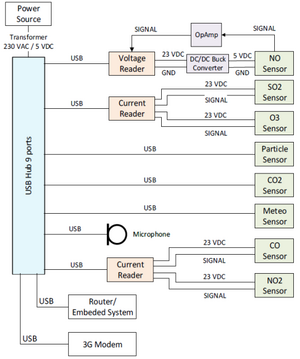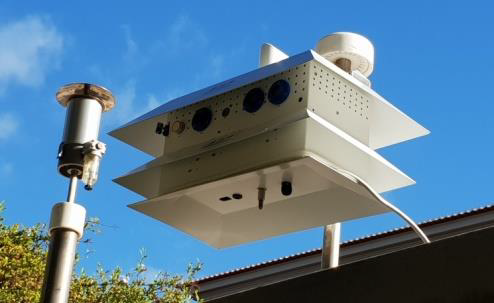Smart metering and user-generated content to improve urban mobility planning and services (Madeira, Portugal)

Area: urban
Date implemented: June 2019
How long from concept to implementation: 3 years
Relation between efforts undertaken and benefits achieved: decent
What was done and how: A network of low-cost wireless sensors and webcams was installed to collect information useful in planning the future of the city (traffic, emissions, air quality, meterological data). An online platform was developed to collect the data. Both hardware and software was developed to implement the monitoring network.
Why it worked to 'fast track' the innovation/measure: High involvement of stakeholders; availability of high-level experts.
Lessons learnt: The measuring methods need to be verified and validated; this may require using other available datasets (e.g. bus ticketing data) to calibrate sensors. It is challenging to select the ideal system that yields as complete a data set as possible, while maintaining a feasible price. Necessary equipment was not always available on the market, and had to be developed.
Tips for replication: Consider regional/national laws on monitoring. Evaluate how existing data sources can be extended/supplemented with new technology.
Sources or links:
- https://civitas.eu/mobility-solutions/smart-metering-and-user-generated-content-to-improve-planning-and-mobility
- https://civitas.eu/sites/default/files/mer_mad2.2_07062021_final.pdf

Date implemented: June 2019
How long from concept to implementation: 3 years
Relation between efforts undertaken and benefits achieved: decent
What was done and how: A network of low-cost wireless sensors and webcams was installed to collect information useful in planning the future of the city (traffic, emissions, air quality, meterological data). An online platform was developed to collect the data. Both hardware and software was developed to implement the monitoring network.
Why it worked to 'fast track' the innovation/measure: High involvement of stakeholders; availability of high-level experts.
Lessons learnt: The measuring methods need to be verified and validated; this may require using other available datasets (e.g. bus ticketing data) to calibrate sensors. It is challenging to select the ideal system that yields as complete a data set as possible, while maintaining a feasible price. Necessary equipment was not always available on the market, and had to be developed.
Tips for replication: Consider regional/national laws on monitoring. Evaluate how existing data sources can be extended/supplemented with new technology.
Sources or links:







